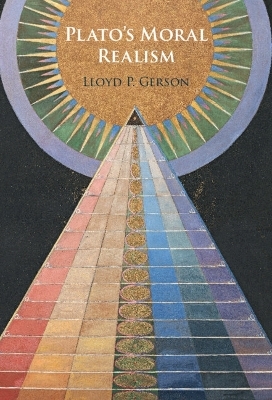
Plato's Moral Realism
Seiten
2023
Cambridge University Press (Verlag)
978-1-009-32998-9 (ISBN)
Cambridge University Press (Verlag)
978-1-009-32998-9 (ISBN)
This book attempts to situate Plato's ethics within his profoundly revisionist metaphysics. It aims to show why Plato makes the keystone of his metaphysical system a normative principle, the Idea of the Good. In doing this, we can see how Plato's metaphysics helps explain his politics and his theological doctrines.
Plato's moral realism rests on the Idea of the Good, the unhypothetical first principle of all. It is this, as Plato says, that makes just things useful and beneficial. That Plato makes the first principle of all the Idea of the Good sets his approach apart from that of virtually every other philosopher. This fact has been occluded by later Christian Platonists who tried to identify the Good with the God of scripture. But for Plato, theology, though important, is subordinate to metaphysics. For this reason, ethics is independent of theology and attached to metaphysics. This book challenges many contemporary accounts of Plato's ethics that start with the so-called Socratic paradoxes and attempt to construct a psychology of action or moral psychology that makes these paradoxes defensible. Rather, Lloyd Gerson argues that Plato at least never thought that moral realism was defensible outside of a metaphysical framework.
Plato's moral realism rests on the Idea of the Good, the unhypothetical first principle of all. It is this, as Plato says, that makes just things useful and beneficial. That Plato makes the first principle of all the Idea of the Good sets his approach apart from that of virtually every other philosopher. This fact has been occluded by later Christian Platonists who tried to identify the Good with the God of scripture. But for Plato, theology, though important, is subordinate to metaphysics. For this reason, ethics is independent of theology and attached to metaphysics. This book challenges many contemporary accounts of Plato's ethics that start with the so-called Socratic paradoxes and attempt to construct a psychology of action or moral psychology that makes these paradoxes defensible. Rather, Lloyd Gerson argues that Plato at least never thought that moral realism was defensible outside of a metaphysical framework.
LLOYD P. GERSON is Professor of Philosophy at the University of Toronto. He is the author and co-author of twenty-five books on ancient philosophy, including monographs, edited volumes, and translations, and has published around two-hundred and fifty articles and reviews.
1. Introduction: Platonism and moral realism; 2. The idea of the good; 3. Virtue, knowledge and the good; 4. Socratic vs. platonic ethics; 5. Moral responsibility; 6. Philebus and Statesman; 7. Morality, religion, and politics; 8. Concluding remarks.
| Erscheinungsdatum | 15.08.2023 |
|---|---|
| Zusatzinfo | Worked examples or Exercises |
| Verlagsort | Cambridge |
| Sprache | englisch |
| Themenwelt | Geisteswissenschaften ► Philosophie ► Ethik |
| Geisteswissenschaften ► Philosophie ► Metaphysik / Ontologie | |
| Geisteswissenschaften ► Philosophie ► Philosophie Altertum / Antike | |
| ISBN-10 | 1-009-32998-7 / 1009329987 |
| ISBN-13 | 978-1-009-32998-9 / 9781009329989 |
| Zustand | Neuware |
| Haben Sie eine Frage zum Produkt? |
Mehr entdecken
aus dem Bereich
aus dem Bereich
unsere kollektive Verantwortung
Buch | Hardcover (2023)
wbg Theiss in Wissenschaftliche Buchgesellschaft (WBG) (Verlag)
35,00 €


